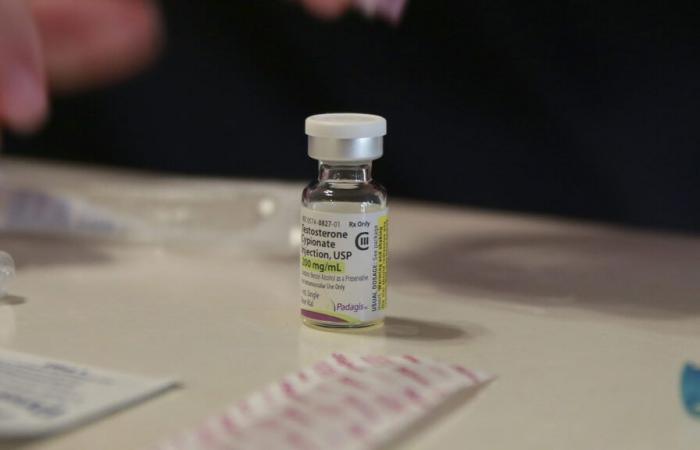A medical journal just published the most reliable estimate yet, and the numbers are low, more clearly reflecting medical practices currently being evaluated by the U.S. Supreme Court.
Fewer than 1 in 1,000 U.S. teens with commercial insurance received gender-affirming drugs — puberty blockers or hormones — in a recent five-year period, according to the study released Monday .
At least 26 states have passed laws limiting or banning gender-affirming medical care for minors, and most of those states face lawsuits. The Supreme Court is expected to issue its decision in a Tennessee case later this year. President-elect Donald Trump has promised to roll back protections for transgender people.
SEE ALSO | Growing up as a trans child in the midst of a stormy social climate
“We’re not seeing inappropriate use of this type of care,” said the study’s lead author, Landon Hughes, a public health researcher at Harvard University. And it’s certainly not happening at the rate that people often think.”
Researchers analyzed a large insurance claims database covering more than 5 million patients ages 8 to 17. Only 926 adolescent people with a sex-related diagnosis received puberty blockers between 2018 and 2022. During this period, 1,927 received hormones. The findings, published in JAMA Pediatrics, suggest that less than 0.1% of all young people in the database received these medications.
Researchers found that no patients younger than 12 were prescribed hormones, indicating that doctors are cautious about when to start these treatments, Hughes said.
-“I hope that our article will calm minds on this issue and allow the public to have a real idea of the number of people who have access to this care,” he confided.
The database included insurance plans in all 50 states, but did not include young people covered by Medicaid, the federal-state health insurance program for low-income people.
The study also did not examine surgical procedures among transgender adolescents. Other researchers have found that these procedures are extremely rare among young people.
Not all transgender youth pursue medical treatments, said Dr. Scott Leibowitz, co-lead author of the Adolescent Standards of Care for the World Professional Association for Transgender Health, a leading transgender health group.
Transgender teens “come to understand their gender at different times and in different ways,” he explained, noting that the best care should include adolescent identity development experts who can work with families to help determine what is appropriate for each young person.
Dr. Leibowitz, who has worked in gender clinics in several U.S. cities, noted that the study “adds to the growing body of evidence on best practices serving transgender and gender diverse youth.”






